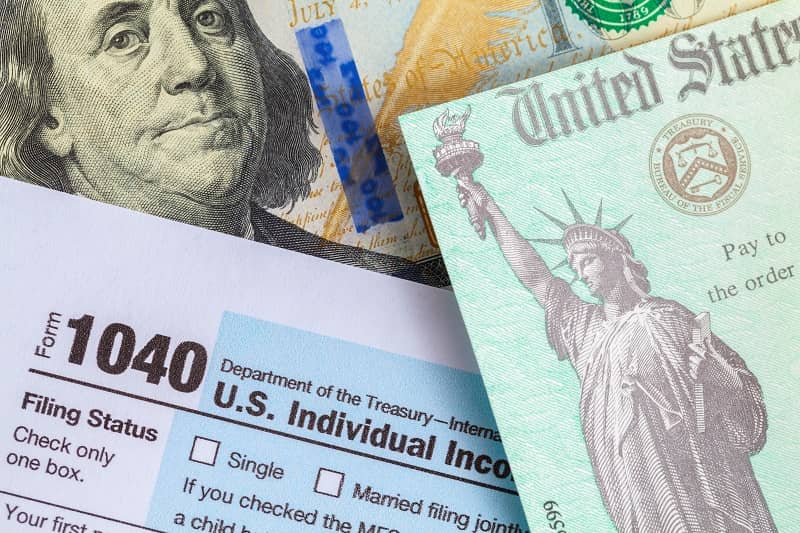Rob Kremer gave the following address at the Milton Friedman “Legacy of Freedom” luncheon at McMenamin’s Kennedy School on July 31, one of 50 events nationwide honoring the late Dr. Friedman on his 96th birthday.
I can’t tell you what an honor it is to be here today, and have the chance to pay tribute, on what would have been his 96th birthday, to a man who had a profound effect on my life. Though I never met him, I always felt as if my life and career was somehow steered by the power of Milton Friedman’s ideas.
Milton Friedman is my hero.
A lasting regret of mine is that I didn’t make more of a concerted effort to meet him before he died. That, of course, is my fault and my loss, but even never having met Milton Friedman, he had a profound influence on my education, my understanding of the world, and my career.
As Matt said, the first time I remember hearing the name Milton Friedman was in my first college economics class, at Willamette University in 1978. He was already a towering intellectual figure, two years removed from winning the Nobel Prize in economics.
At the time, as many of you my age or above recall, the U.S. was in the throes of an economic phenomenon that was not supposed to happen under the prevailing orthodoxy of macroeconomics at the time – Keynesianism. In the Keynesian world, high inflation was always accompanied by low unemployment, and vice versa. The Phillips Curve.
The Keynesian view was overwhelmingly the consensus view among economists and policymakers in 1978. As President Nixon once famously said: “We’re all Keynesians now.” Well, everybody except Milton Friedman.
But in the ’70s, we got “Stagflation:” high inflation at the same time as a high unemployment rate. That wasn’t supposed to happen, in a Keynesian world, and nobody knew what to do. Well, nobody but Milton Friedman.
Friedman had long argued that the Keynesian policy of “fine tuning” an economy through government fiscal and monetary policy was wrong, and had predicted that the long post WWII expansion – during which time the Keynesian policies ruled – would come to an abrupt end.
So in the late 1970’s, as the Keynesian world was shattered, Milton Friedman was looking very prophetic. Short-term interest rates were touching 20% and inflation was in the mid-teens. Unemployment above 10% – For the first time his alternative to Keynesian macroeconomics – Monetarism – gained traction among economists and policymakers.
It was in the middle of this national debate that I started studying economics at Willamette. My economics advisor at the time had spent a recent summer at the University of Chicago, where he met Milton Friedman and learned about the “Chicago School.”
As I spent my two years at Willamette, taking more econ classes and talking with my advisor, The Chicago School, and the name Milton Friedman came up time and again. Clearly, Chicago was the place to be for economics. Encouraged by my advisor, I decided to transfer to Chicago, and continue my studies there.
I came from a family of public school teachers. By this time my father was an administrator – he was a high school principal in the Beaverton School District. Both my parents were good Democrats, liberals. I thought I was too. I dutifully voted for Jimmy Carter in my first presidential year ballot. And of course, as a family, we were very pro-public education.
I arrived at Chicago in 1980, a small town boy in a big city school. I was wide eyed, to be sure. But I was ready for a big academic challenge. What I wasn’t ready for, and what I certainly didn’t anticipate, was to have every my every political and economic and social assumption challenged, probed, and questioned by the ideas of Milton Friedman and The Chicago School of Economics.
Milton Friedman was gone from Chicago by then – at least physically. He left the year before for the Hoover Institute. But he wasn’t really gone. Friedman’s shadow loomed large over the economics department at Chicago. His wit, his disarming charm, his debate style – he was legendary and we all tried to mimic him.
But his ideas: they were the most powerful. Milton Friedman was a man who cared about ideas, who was defined by his ideas, and whose ideas were so powerful, so compelling, so robust that time and again they were the force behind major social changes that we still benefit from today.
All the ideas and policies that Milton Friedman became known for had one overarching theme: freedom. Individual liberty. Milton Friedman believed individual freedom is a moral good. He once said that his main theme in public policy was the promotion of freedom. And there has never been a more articulate voice in defense of freedom than Milton Friedman.
He is arguably is the most influential economist in history in terms of providing the intellectual and theoretical basis for major changes in public policy in areas that affected – and continue to affect, every single one of our lives.
His monetarist approach to macroeconomics was adopted by Fed Chairman Paul Volcker, and was largely responsible for taming the inflation monster of the 1970’s. It required a temporary spike in interest rates and a deep recession, but the monetarist approach of targeting money supply rather than interest rates prevailed. Since 1981, a time when the Fed has largely pursued a monetarist approach, swings in the business cycle have been much less frequent, and less severe than the 50 years before.
Friedman was instrumental in ending the Military Draft; he argued that conscription was an immoral limitation of freedom by government- indeed, a form of slavery. He thought that an all-volunteer military would be more effective anyway. He convinced Nixon to end the draft in 1973.
Friedman argued for a system of floating international currencies, and convinced Nixon to end the Bretton Woods system that pegged foreign currencies to the dollar, and the dollar to gold.
Throughout the cold war, a time when many of Friedman’s colleagues we beguiled by communism, seeing it as just another valid form of political economy. Friedman saw it for what it was: an inherently immoral ideology that survived only enslaving its subjects. He was one of the first to predict that communism would fail. At a time when many of his fellow economists spoke of the efficiency and superiority of a planned economy, Friedman knew that bureaucrats were no match for markets.
Among those who Friedman convinced about this was Ronald Reagan. Reagan brought about the Soviet Union’s collapse not through military confrontation per-se, but by putting pressure on its inherently contradictory economic system. Friedman was right: the Soviet Union economy collapsed.
In looking at Milton Friedman’s life work, it is interesting to ponder just what was it about this man that made him so right about so many things? Why could he see so clearly what so many of his colleagues were blind to? How did he know that Keynesian policies would fail, that communism would fail, and that a volunteer military was superior?
I think it is because, as accomplished and expert as he was on all of the subjects he studied, his clarity of vision wasn’t really because he understood the subjects better than his contemporaries, but because he understood FREEDOM better than his contemporaries.
For Milton Friedman, freedom was the cardinal virtue. He knew in the core of his being that policies, laws, economic systems, and political regimes that were based on limiting freedom were inferior, and would fail. So he didn’t necessarily have to know more about every subject than others to be able to see things more clearly. (That said, he always DID know more about every subject than anyone else.)
Milton Friedman also applied his cardinal principle of freedom to education. Fifty-three years ago – 1955 – he coined the word voucher when he proposed that a better way to provide education services would be through a system of parental choice.
Interestingly, as much a supporter of unfettered free markets as he was, Milton Friedman had no qualms with public funding of education. He was an economist first, and he recognized the conditions of “market failure” that justify government involvement in the marketplace.
When a cost of a product can be forced on parties not involved in the transaction – like industrial pollution – Friedman recognized that there is a role for government. He called these “neighborhood effects,”
He knew that neighborhood effects can be both negative AND positive. That is, there are some services that benefit everybody when provided, not just the person who consumes them. Friedman thought that education was one of these services. Everyone benefits from an educated populace, so there is a valid role for government to subsidize education.
So Friedman supported government-funded education. What he understood was that government need not be the service provider – and in fact there were very good reasons why the government, although it should fund education, it SHOULD NOT run the schools.
Friedman proposed, in 1955, parents should be given a voucher that they could use to send their child to any school of their choosing. In 1955, this was a radical idea. Dissatisfaction with the public school system back then barely registered. There were no teachers unions. Most school districts were still quite small. The education bureaucracy was a fraction of its current size.
Yet Friedman saw what would be the future of the public school system under its current structure as clearly as he saw the future of Soviet Communism: any system based on coercion rather than freedom is doomed to fail. He understood, way back in 1955, that a school system that was not based on parental choice would end up being operated for the benefit of the adults in the system, rather than the children.
This brings me to one of the enduring truths I heard Milton Friedman say, something I have always kept in mind as I’ve worked in the political arena here in Oregon. I don’t remember the exact setting – it was a TV interview I saw him give. He said:
“Politics 101 tells us that any political arena will over time become co-opted by the concentrated interests at the expense of the diffuse interests.”
Milton Friedman saw the inevitable path of the public school system because he understood this truth. In the political arena of public schools, the employees are the concentrated interests. They can organize easily, raise funds, influence elections, lobby the legislature and co-opt the political process. The parents and children – they are the diffuse interests: they number in the hundreds of thousands, they are not easily organized, and each has only a small comparative stake in the outcome compared to the employees.
So Friedman saw, way back in 1955, that if the public school system stayed with the model of government operated schools, they would evolve to serve the adults in the system rather than the students they were supposed to educate.
Friedman wrote and spoke about his voucher idea regularly for the next forty years, but it wasn’t until 1990 that things started to happen. That year, Oregon voted on a school choice ballot measure (sponsored by Steve Buckstein – the first statewide vote on a school choice plan in the nation) That failed, but later that year the Wisconsin legislature passed a voucher plan for residents of the city of Milwaukee – the first voucher in the country.
Things took off from there. In 1991, Minnesota passed the nation’s first charter school law, and by the end of the decade, 80% of the states had some form of a charter law.
In 1996, Friedman started the Friedman Foundation, in order to help establish school choice programs in the U.S. (Actually, Milton Friedman and his wife, Rose, started the foundation, the formal name of which is the Milton & Rose Friedman Foundation. I would be remiss not to mention Rose, because she was an award-winning economist in her own right. She grew up in Portland, and is still alive.)
I remember when I first heard about the foundation. Its President, Gordon St. Angelo, kicked it off by going on the Rush Limbaugh show. I had recently become active in the school choice arena here in Oregon, in no small part because of Friedman’s intellectual work on the school choice.
I found the number, called and spoke to Mr. St. Angelo that very day. I couldn’t believe that my hero had started a foundation to assist people like me!
I’ve been blessed to have had their help over the years on all sorts of issues as we’ve struggled to make headway on school choice in Oregon.
The fact that Friedman devoted his life’s fortune to reforming the school system speaks volumes. He was the world’s leading authority on monetary policy. His body of work spanned decades and encompassed dozens of subjects. But when it came time to decide on how to invest his financial legacy in the future of our nation, he chose school choice.
If freedom was the overarching theme for all his pursuits, he obviously considered educational freedom to be the most pressing issue for our future.
Since the Friedman Foundation was founded in 1996, it has made a huge difference. 14 states now have some type of tax credit or voucher program established in law, and the Friedman Foundation has been active in helping every single one since its founding.
They’ve helped in Oregon, too. I know they have been very helpful with Matt’s tax credit project. Heavens knows, Oregon needs the help.
Can we have school choice in Oregon? Can we extend the movement beyond our modest charter school law? Can Oregon join the list of 14 states that have passed legislation for some kind of tax credit or voucher plan?
Well it took three legislative sessions to get our charter school law passed, and I remember the long odds we were told we faced when we started. But we succeeded, and now there will be nearly 90 charter schools opening their doors for school next month here in Oregon.
The “concentrated interests” in Oregon were against the charter school law from the start, and they still try every single legislative session to kill the law. And since they haven’t been able to kill the law, they take aim at the most successful schools.
You’ve probably heard or read about the Oregon Connections Academy, Oregon’s largest on-line charter school. Connections Academy has more than 1800 students, who are taught at home through an innovative combination of on-line lessons and traditional school activities. To say this school is a success is a huge understatement. They hoped to enroll 500 students in the first year, but ended up having to turn down more than 1000 applications, after enrolling 800. This fall it will have well more than 2000 students from every corner of the state, making it one of the largest schools of any kind in Oregon.
In other words, it is a very big target for the concentrated interests who are threatened by the existence of schools that they do not control. The Teachers Union is trying to shut the school down. We’ve been through several battles against the union and their proxies already, and they will not ever stop. It is their expressed intent to close the doors of the Oregon Connections Academy, and tell 2000 students, and their parents, that their choice doesn’t matter.
Can you imagine a better illustration of the immorality of a system based on coercion?
What can we do? Well, what would Milton Friedman do? Give up?
He argued for decades that the Soviet Union would fail before it collapsed under the weight of its own inherent contradictions. The concentrated interests in the education arena are no different. Their existence depends on limiting the freedom of others. They look very strong – but so did the USSR when Carter was President. A school system built on coercion and limiting choices is inferior, and will eventually fail. Milton Friedman knew this.
I believe he saw the future of the public school system with the same clarity as he saw the future of the Soviet Union, and for the same reasons. And I believe he started his foundation to help give a push, an assist to bring about more quickly what he could see was the inexorable force of history.
And so here today, we look at the political environment in Oregon and think the prospects for getting school choice – for instance, passing legislation such as Matt Wingard proposes — looks bleak: the deck is stacked against us. The teachers unions are strong, the Democrats are in control and they oppose us, the media is not on our side.
But we have one big advantage, an advantage that I think Milton Friedman understood better than anyone, which is why he was so prescient: We are on the right side of history.
The history of humanity is the history of the extension of human freedom from all forms of political bondage.
So, take heart! School choice is just one facet of this long-term march to freedom. History is on our side. Our enemy is weaker than you think. The object in the mirror is smaller than it appears.
Happy 96th Birthday, Milton Friedman.











